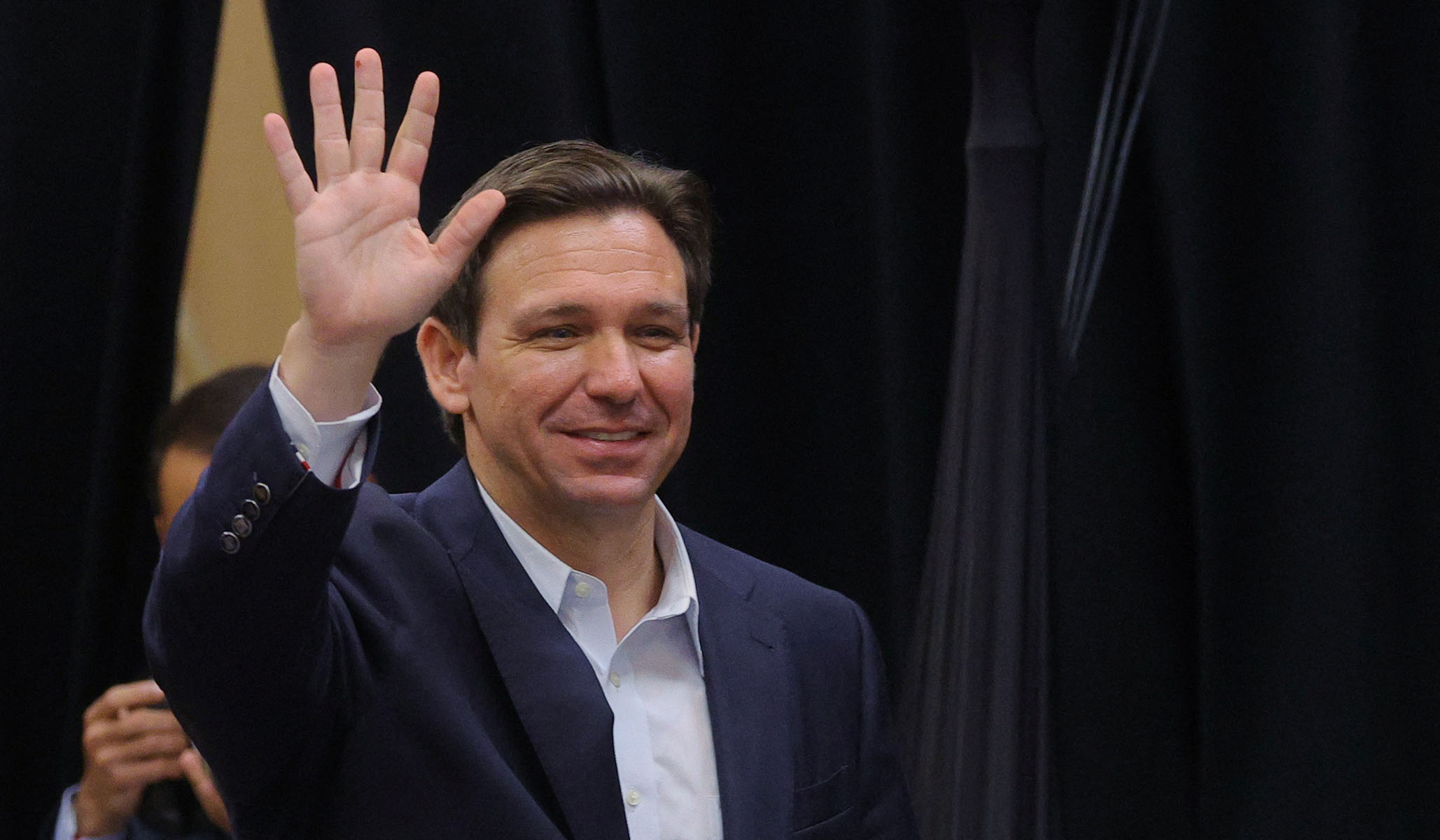


Is Ron DeSantis autistic? Politico can’t possibly say. But the outlet can say that many other people are saying it. Who? Primarily allies of the governor’s primary opponent in the race for the Republican presidential nomination, Donald Trump.
The rumor Politico’s Michael Shaffer broadcast and boosted is directly attributed to former Trump White House adviser and convicted felon, Steve Bannon, but other Trump-adjacent hatchet men like Roger Stone have contributed to this whisper campaign. Indeed, Shaffer observes that the claim DeSantis is somewhere on the spectrum has been “echoed across the MAGA ecosystem.”
Not that there’s anything wrong with that! Shaffer quotes one autism advocate who is troubled by the armchair diagnosis but also by the pushback the armchair diagnosis has inspired. “The implication is that the status of being on the spectrum is problematic or shameful or bad — and, at any rate, something intentionally kept secret,” Shaffer wrote. But if it’s wrong to render an uninformed diagnosis, it’s also wrong to deny that diagnosis lest that denial offend not just the autistic but the generally well-mannered:
In the face of that sort of allegation, something like a categorical denial from the targeted candidate would come off as a further statement that a spectrum diagnosis is something bad (even if the denial happens to be entirely true).
Thus, Politico has placed DeSantis in a bind, even while strenuously denying the existence of the bind. The Florida governor has been accused of having a neurological condition. Maybe that shouldn’t matter to anyone, but it could matter to some. Moreover, it could matter in ways voters won’t express in public or to pollsters for fear of running afoul of social-desirability biases. And DeSantis cannot deny the allegation because doing so would imply that something is wrong with being on the spectrum. The implication here is that, if DeSantis were to refute this assertion, it would open him up to the charge of bigotry. That’s quite the conundrum Politico has imposed on DeSantis.
The author clearly anticipated criticisms of it as an unsubstantiated smear against DeSantis. His piece inoculates itself against the charge by suggesting that anyone who views the claims it is litigating as a smear can themselves be accused of smearing people on the autism spectrum. Now you, too, have found yourself in Politico’s clever trap.
The more-in-sorrow affectation the author employs in a piece designed to expose the Trump campaign’s insinuation to as broad an audience as possible layers brazenness atop irresponsibility. The piece simultaneously condemns the rumor mongers while defending the act of legitimizing this thinly sourced imputation to D.C.’s voracious appetite for rumors. Like the latest fad, “Making fun of DeSantis’s social awkwardness is a widely shared pastime” in the District’s cliquish vipers’ nests. And “the underlying insinuation — this guy can’t quite relate — lines up with stereotypes about people on the spectrum.”
We’re left with a muddle of contradictions. This whole sordid affair is tragic, except when it serves as fodder for light banter during happy hour at Le Diplomate. As an “insult,” it’s “insulting,” said one of Shaffer’s sources, but its explanatory power and strongly implied humor value cannot be denied. It’s a delicate subject, which is why it has been left to the socially maladjusted wrecking crew of Trump associates to propagate. It should be discussed with anthropological dispassion and detachment, save when the reporter descends to street level to sample the local mockery.
“Still,” the author wonders, “if ableism is eternal, the specifics of tossing around autism-spectrum diagnoses says something about our moment.” It sure does.
